- Home
- Jason McIntyre
Deathbed
Deathbed Read online
Deathbed
a novella by
Jason McIntyre
Published by &
Copyright © 2017 Jason McIntyre
All rights reserved. Without limiting the rights under copyright reserved above, no part of this publication may be reproduced, stored in or introduced into a retrieval system, or transmitted, in any form, or by any means (electronic, mechanical, photocopying, recording, or otherwise) without the prior written permission of both the copyright owner and the above publisher of this book. Thank you for respecting the work of this author.
Fiction titles by Jason McIntyre
On The Gathering Storm
Thalo Blue
Walkout
Mercy and the Cat
Black Light of Day: A Collection
Nights Gone By: A Collection
The Night Walk Men: A Novella
The Devil’s Right Hand: A Night Walk Men Novel
Corinthian: A Night Walk Men Story
Kro: A Night Walk Men Story
Dovetail Cove titles by Jason McIntyre
1. Deathbed (Dovetail Cove, 1971)
2. Bled (Dovetail Cove, 1972)
3. Fled (Dovetail Cove, 1973)
4. Redhead (Dovetail Cove, 1974)
5. Zed (Dovetail Cove, 1975)
6. Unwed (Dovetail Cove, 1976)
7. Shed (Dovetail Cove, 1977)
8. Dread (Dovetail Cove, 1978)
- 9. [COMING SOON] (Dovetail Cove, 1979) -
- 10. [COMING SOON] (Dovetail Cove, 1980) -
Learn more about the author and his work at:
www.theFarthestReaches.com
“Evil is also not anything small or close to home, and not the worst; otherwise one could grow accustomed to it.”
- Jacob Grimm
“Nothing has changed since Little Red Riding Hood faced the big bad wolf.”
- Alfred Hitchcock
“You don’t feed nightingales on fairy tales“
- Fyodor Dostoyevsky
Dovetail Cove
July 14, 1971
Part I
The Grand Tapestry
1.
Farrah Birkhead pedalled along the bike path so fast and so hard it turned to a grey-green blur beneath her feet and alongside her. And to the world, she was just a blur of orange cycle shorts and a white sleeveless top. No helmets, right Farrah? Helmets were for sissies.
At twelve-and-a-half, Farrah was already starting to stretch out. No boobs yet. Her friend, Jamie, was starting to get some but they were still nubs, nothing to brag about—even though she did to Farrah who was still as flat as they both were at summer camp last year. At twelve-and-a-half, Farrah Birkhead didn’t have the grace to avoid clarifying her age if you made the mistake of saying she was only twelve. At twelve-and-a-half, Farrah Birkhead didn’t have the bosom of a thirteen- or fourteen-year-old. But at twelve-and-a-half, she had enough self-awareness to recognize it would arrive. As would the problems that accompany burgeoning womanhood for all young ladies.
Tanned legs, arms and neck, Farrah had her hair up in a messy pony. Too many strands were lost and victims of the wind now, what her Mom called ‘whispies’. But the air felt good. It was hot, but not as hot as it had been out on Main Street for the annual street market. Dad had let her go on her own for the first time because he had some things to take care of at the office. And mom, well, that’s complicated. Mom was off island the last while.
But Farrah was desperate to go. “I just know I’ll find something great!” she’d said to her dad. “Please oh please? Jamie will be there and I won’t talk to anyone.” And by anyone, Farrah meant tourists. Off-island folks. Not that she cared one whit whether someone was local or not—people are people, a phrase she remembered from a Sunday school teacher she had liked an awful lot.
But it was Dad’s point of view. “Tourists,” he’d said more often than not. “They can be...weird.” He’d told her some horror stories about different things that had happened through the years. And she was sure he’d sanitized them all in different ways, just for her. One of them, he’d sometimes remind her, in as gentle a way as he could, had lost their dog camping up past the main beach. That dog-less family had boarded the ferry for home anyway, no poochie in their Chevy’s backseat. Well, that poor beagle, emaciated and scared, was the one that had wandered right into the generous backyard where Farrah, about four at the time, was playing with her dollies.
“It’s like they send their brains on vacation when they go on vacation,” Dad often said. “They don’t think. Most people have trouble with that, the best of times. But off-islanders are the worst.”
But he’d let her go to the market. With the stipulation she’d be home by five p.m. at the very latest. She’d gotten her way by making sure to guilt her dad into it. “Gran and me always used to go. But she can’t anymore.”
It was five (or six) minutes past so that’s why she was pedalling with mad fury through the trails south of town, down to where the Birkhead’s little half-acre was. Douglas Birkhead’s job was recession-proof—not like the vast majority of islanders who weren’t in a trade related to tourism (or related to Chris Banatyne, the island patriarch).
Doug Birkhead was chief of Police of the island town known as Dovetail Cove.
2.
The reason Farrah was five (or six) minutes late was simple. As she’d foretold, she found something great. The market was a three-day event that had waned in popularity. It got smaller each year. Farmers from up north brought their goods to try and catch direct customers. Artisans from Oregon, Washington State and the lower mainland of British Columbia, trundled over on the ferry to try and sell overpriced handmade trinkets and pottery. The odd novelist sat and signed copies of his vanity press book about his upbringing in the dirty thirties.
Zeke, a municipal employee, would saunter around in the sun, stop to tilt his hat back and watch the shoppers while he gave his sweaty brow a wipe, then start up again, stabbing the odd styrofoam cup in the gutter with his trash stick.
Dab Saum, owner of the Highlander Cafe, would send his waitress du jour, Tina or Helen, out with trays of iced tea on the hot days at a quarter apiece—or steaming coffee on the rainy ones. And the cycle of styrofoam for Zeke to stab up and put in the trash would begin again.
Usually, there were one or two booths run by junk dealers. In the case of Farrah’s find, it was a woman with round John Lennon sun glasses and long white hair. She wasn’t selling vitamin potions or elixirs, though she called to mind that kind of fairy tale, where perhaps Farrah would buy some magic beans and they’d sprout something nefarious by morning.
Out across the closed street, sellers were packing up. A radio was playing “Beyond the Sea” by Bobby Darin. The touchy signal for a mainland station was blessing the market this morning and Bobby’s tinny croon carried across the street to this woman’s booth. Through her half-tinted lenses, she eyed Farrah with the black eyes of a witch.
No, Farrah wasn’t interested in potions or beans. She loved old things. She was a kind of archaeologist of modern artifacts. Cameras, cash registers and typewriters piqued her, but she usually couldn’t afford them. She was twelve-and-a-half, after all. And what did a twelve-year-old need with a thirty-year-old Olivetti missing the letter ‘T’?
Farrah’s interest had lain in a black tin box with no name on its cover.
“It was most likely someone’s snuff tin,” the Lennon Lady said as Farrah turned it upside down and felt its contents shift. “Or pipe and tobacco. It’s my mystery box. Tell you the truth, I don’t even have the key for it.”
Farrah, who’d told a fib to Dad about Jamie being with her at the market, squinted against the late afternoon sun and looked disbelievingly at the old witch. A fibber could spot another fibber
, that’s what Farrah’s granny had told her. She stopped just short of blurting her thoughts to the Lennon Lady, which were, simply, curtly: “I don’t believe you.”
As if reading her mind, the old woman with the white hair down her back in a straight, simple ponytail that ended in a tie-dyed rag with a bulky knot, said, “Alright, alright. I have the key. But here’s the deal—”
She produced a small silver key, as if by magic. She held it out as if it was indeed a small vial of haunted elixir, one that would solve, say, all of Dad’s problems.
Farrah, who was sucking a giant Gobstopper in one swollen cheek, shifted it to the other side. Her lips had a touch of blue dye on them. She said nothing. She wasn’t going to be pushed around by this gypsy junk seller. She was better at dickering than this woman knew. To keep quiet was the utmost in owning a negotiation. Another tidbit of wisdom from her old granny.
“Deal is this,” Lennon said. “You can have the box for free.” Then she leaned in and sneered. “The key will cost you ten dollars.”
Farrah puckered her lips. She put her hand on her hip, cocking it to the side like she’d seen her mother do when Mr. Harlow, the grocer, was trying to sell her a cut of meat that wasn’t exactly what Mom wanted. To the junk gypsy, Farrah said. “I could drop it off the north bridge on a big boulder and have it open in two seconds.” She made to leave—with the box under her arm.
Without missing a beat, the Lennon woman said, “Okay. Five dollars for the key.”
Farrah stopped. She looked back and shifted the gobstopper to the other cheek again.
“I gotta be home in ten minutes,” she said to the gypsy who reminded her of the skinny dude on her dad’s Beatles record album jackets—but wearing a bad Halloween wig. “Or my dad’s gonna roast me on a spit. I have fifty cents left.”
Defeated, hot, and likely tired after a day in the sun out on Main Street in some little one-horse town she’d never visit again in her waning years, the gypsy woman in the round John Lennon glasses put out her hand and said, “Fine. Fifty cents.”
3.
It was nine minutes past five when a huffing Farrah dropped her bike on the gravel driveway and pulled the black tin box out from under the book straps on the rack over her back tire.
She ran flat-out to the back door and bounded in. Dad was in the kitchen and the smell of spices and meat hit her. “Farrah,” he said, without looking up from the food he was getting ready.
She knew the tone. “I know, Dad. Ten minutes late. I know, I know.”
He didn’t push it. And she noted that he didn’t push it. The two of them reached a truce about this one without a single shot being fired. They were getting better at this.
That’s the way Farrah liked it. Since Mom had gone to the mainland, she and her dad had reached a kind of shorthand with each other. Surprisingly, it was working well between them.
With her prize, Farrah flopped on the couch in the big room conjoined to the kitchen. This was a fairly new house but was stacked with stuff everywhere. Corners and tables and bookcases bulged with all manner of things. The place looked like the junk dealer’s booth but way worse, maybe what the gypsy junk dealers’s own house looked like, wherever she lived.
“Go wash up,” Doug said, still not looking up from what he was doing at the kitchen counter.
Farrah gave a pfft sound. “Dad, come on, I want to look at what I got. ‘Sides, you’re not even ready. The meat hasn’t even hit the pan yet. Why aren’t we barbecuing? It’s hot out.”
Ignoring her question, he said, “You need to set the table. And before you can do that, you need to clear your junk off the table.”
“In a minute,” Farrah said, leaning forward and setting the black tin on the crowded coffee table. She turned it once to get a look for any stickers or engraving. Nothing obvious. It wasn’t junk, not to Farrah.
“Not ‘in a minute’,” Farrah,” Doug said. “Or we’ll be having a bigger conversation about the ten minutes. I’m still the boss here.”
Farrah let out a drawn grunt of exasperation. In the Sunday funnies it would have been an Ugggh. “Mom wouldn’t call it junk.”
“Well,” Doug said, wishing he hadn’t acknowledged it. But he’d already started speaking. He needed to say something. “Mom’s not here.”
No, she sure wasn’t. And with each passing day, with only her father’s one-sided way of looking at things, Farrah was painfully aware of her mother’s absence. Not just for things like going to the market or making dinner but in understanding Farrah.
She got up from the old leather couch and trudged away towards the hall with slumped shoulders and sagging head. Her messy hair was mostly all out of her ponytail now and the elastic was ready to drop off and get lost in the rug. Doug thought she looked like his wife at the moment, and that rubbed him crossways when two or three years ago, it would have made his chest heavy with a picture-perfect, Norman Rockwell feeling.
“Soap, young lady,” he added, giving a sprinkle of salt to the wound of being the boss—the only boss—in the Birkhead house these days.
Like a lightbulb popping on over her head, she perked up. She turned, dashed back to the coffee table and plucked the black tin from the precarious stack of magazines and old TV Guides.
She dashed down the hall. Doug called after her, a fear that he’d lost this skirmish in his voice. “I want this table set in five minutes, Littlest Lady!” He realized how much he sounded like his own father and let out a breath when he heard the bathroom door’s lock click audibly from the dark hallway.
When she didn’t respond, he shouted. “Farrah!”
From down the hall and behind the door he heard her: “Littlest Ladies need privacy!”
That was something she’d learned from Mom. When you confronted a man with it being a women’s issue—or one of privacy—he couldn’t say a word crosswise back. He just had to cool his heels until you were ready to emerge. Farrah missed her mom.
4.
The Lennon Lady had been more than a junk dealer. Farrah had seen lots of those. This one had given her a card that said, Blue River Estate Dealer, Sales and Salvage. Those ones were the best, because often there were some really neat and tragically undervalued treasures in their collection. And sometimes you could get what they called a ‘lot’ for a few bucks and come up with something inside that the dealer had overlooked or, simply, not researched properly.
Frankly, her own house had become a bit of a junk heap the last couple of years. It had creeped up and she really couldn’t remember any turning point when it went from being an average ordinary house to one that was on a watch-list of homes in need of a condemning certification.
She’d learned bargain hunting from her mother. But here was Farrah, ready to add another box of junk to her own little room at the end of the hall.
It didn’t matter to her right now. The “Estate Dealer” in the tinted Lennon glasses had called this one her mystery box. Farrah had learned from her Mom to play it cool so she’d never let on. But her heart had jumped and she’d started to sweat even more when the junk dealer had called it that. The idea that there could be a banded stack of—what were they called?—bearer bonds in the tin, got her all tingly. Maybe it held someone’s last will and testament. Maybe it was a stash of someone’s Alice in Wonderland drugs, goof pills that her dad had told her tourists would sometimes bring over on the ferry.
There was nothing that Farrah liked better than a mystery. It wasn’t the idea that there would be countless riches in the mystery box—though that would be a great lot of fun. No, it was that the mystery box might hold something even more interesting.
It might hold someone’s story.
5.
After dinner—and Doug did barbecue the steaks, by the way—Farrah went to her room. Doug called after her. “I’m heading out. I’ll check in on Gran before I head home. I want you in bed around nine or so.” She didn’t answer. Knowing it was useless, he shouted one last detail. “I want the kitchen cleaned.
I’ll check before I go to bed.”
Still nothing from Farrah. She had closed her door and tuned Dad out.
Dad gave up—for now. But from behind her closed door, she heard him put on one of his records. It was Otis Redding and he was singing about coming out to the Frisco Bay from Georgia. Two thousand miles, he sang. And nothing ever changes.
Farrah knew the song. Knew that Dad put records on when he was worried about something. It wasn’t her he was worried about, not this time.
But even still, the echoing sound of the record player through the house was a comfort. Maybe worry was wrong. Dad put music on when he left in the evenings too. It was like leaving a shadow of himself in the house when he went to work. That was the comfort for Farrah. That, even mad at her, Dad was still thinking of her.
Letting the song fade away from the forefront, she set the black tin on her bed, rubbed her mouth with the back of her hand in an anticipatory gesture, and surveyed the lightly scuffed paint on the metal. She got on her knees at the edge of the bed and smoothed out the bedspread on either side.
From the pocket of her orange cycling shorts, she pulled out the little silver key she’d paid fifty cents for. Like it was sacred, she rubbed it and then put it in the little matching clasp. She turned it, licking her lips.
The clutch popped and she was able to lift the black lid from the black base effortlessly. Inside was a treasure trove—and a smell—one of old metal and musty cardboard. Inside were other smaller metal canisters. There was one with Rexall Quick Bands in flaking red paint on a rusted white tin. A second Rexall tin was smaller and round. It held a healing salve once upon a time. Another was a snuff tin proclaiming Copenhagen Satisfies in deep embossing. It was the most rusted of them all. Another said Summers Electrics—Farrah had no idea what that would have contained. Maybe blades for some kind of ancient hair trimmer? A beautifully-designed red and yellow one stated it was for Prince Albert Crimp Cut Pipe Tobacco and showed a rather astute looking man with a curly moustache and long beard on its front. Two identical tins—one for ladies’ cigarettes was a turquoise shade and showed a black cat with its back up in a hump and its tail curling seductively. Those were called Black Cat Virginia Cigarettes and touted themselves as Extra Mild - Superfine Quality. The other tin was for Player’s Navy Cut and sported what looked like an old postage stamp but might have been the price tag. It was long and bent over the joint where the lid of the tin would have met the base. It said 50c. Farrah gave a pfft! sound at that. She’d spent the same on the whole damn thing and she bet every last one of these canisters was filled with the same thing: bubkiss.

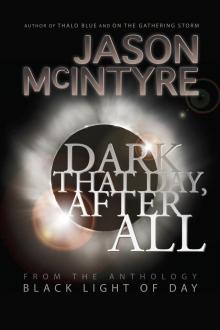 Dark That Day, After All
Dark That Day, After All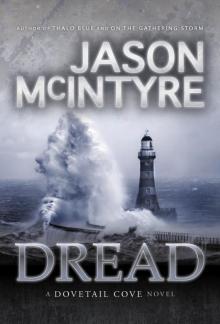 Dread
Dread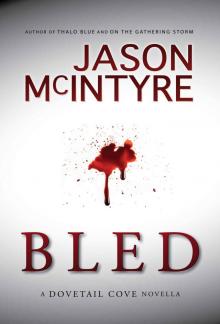 Bled
Bled Instead
Instead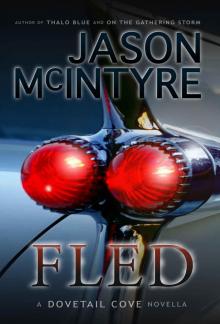 Fled
Fled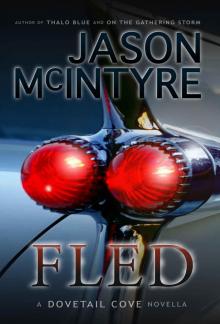 Fled (Dovetail Cove, 1973) (Dovetail Cove Series)
Fled (Dovetail Cove, 1973) (Dovetail Cove Series) Zed
Zed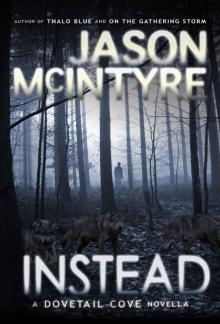 Instead (Dovetail Cove, 1979) (Dovetail Cove Series)
Instead (Dovetail Cove, 1979) (Dovetail Cove Series)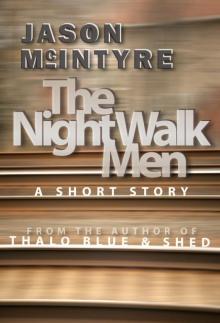 The Night Walk Men
The Night Walk Men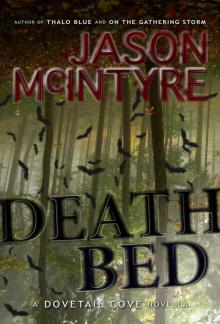 Deathbed (Dovetail Cove, 1971) (Dovetail Cove Series)
Deathbed (Dovetail Cove, 1971) (Dovetail Cove Series)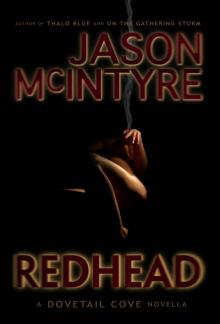 Redhead (Dovetail Cove, 1974) (Dovetail Cove Series)
Redhead (Dovetail Cove, 1974) (Dovetail Cove Series)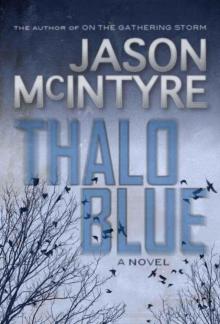 Thalo Blue
Thalo Blue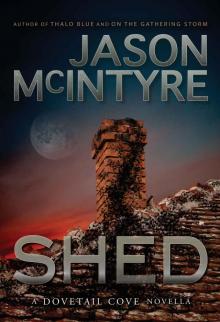 Shed
Shed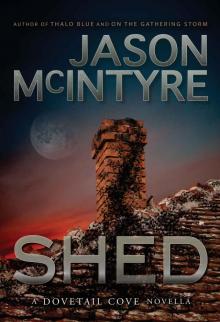 Shed (Dovetail Cove, 1977) (Dovetail Cove Series)
Shed (Dovetail Cove, 1977) (Dovetail Cove Series)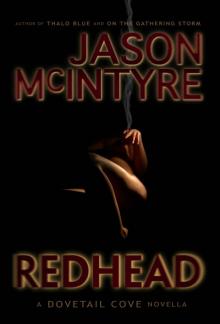 Redhead
Redhead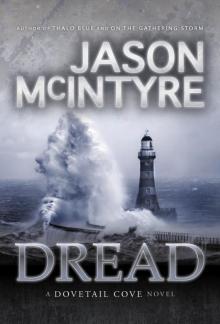 Dread (Dovetail Cove, 1978) (Dovetail Cove Series)
Dread (Dovetail Cove, 1978) (Dovetail Cove Series) Zed (Dovetail Cove, 1975) (Dovetail Cove Series)
Zed (Dovetail Cove, 1975) (Dovetail Cove Series)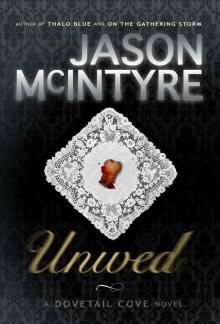 Unwed (Dovetail Cove, 1976) (Dovetail Cove Series)
Unwed (Dovetail Cove, 1976) (Dovetail Cove Series)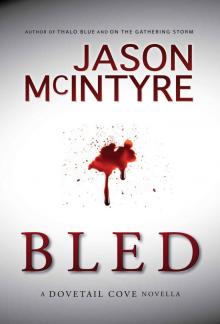 Bled (Dovetail Cove, 1972) (Dovetail Cove Series)
Bled (Dovetail Cove, 1972) (Dovetail Cove Series)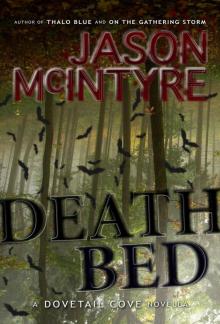 Deathbed
Deathbed